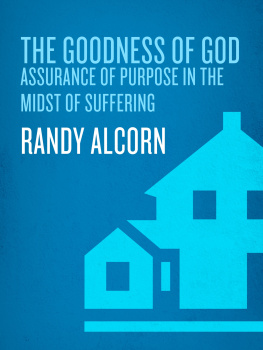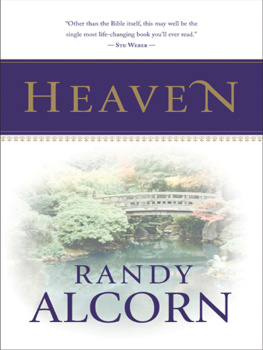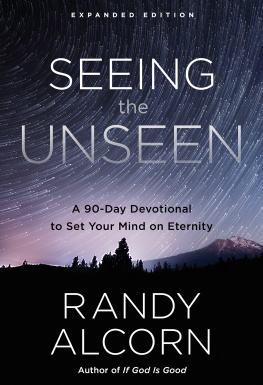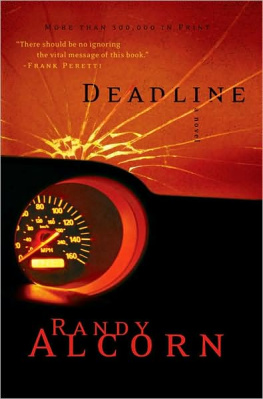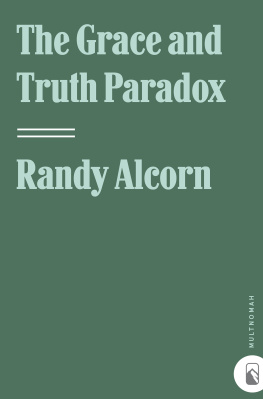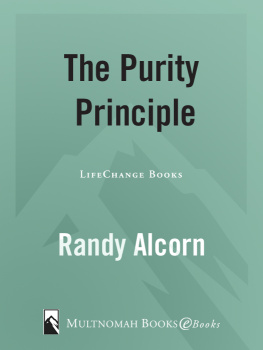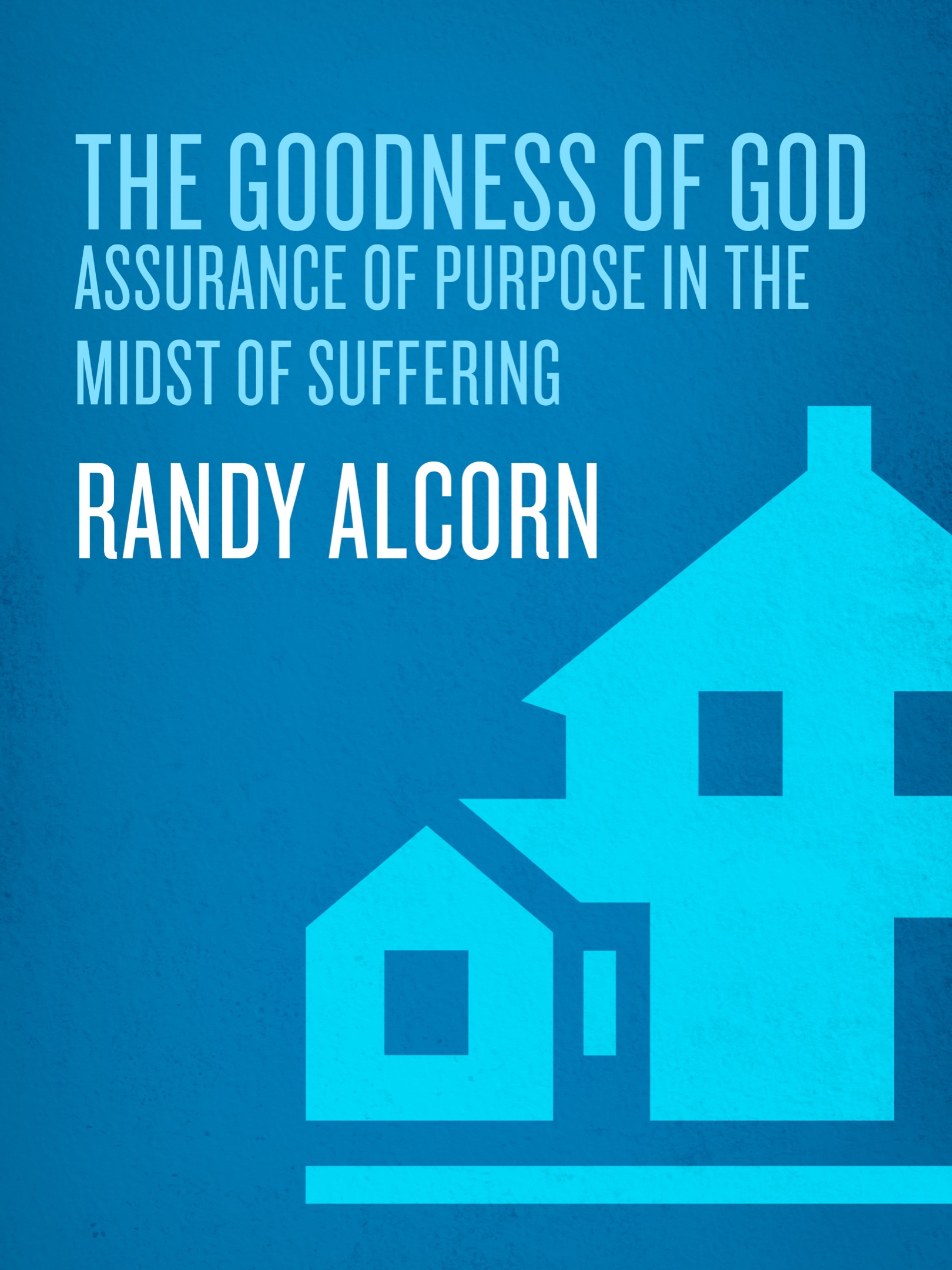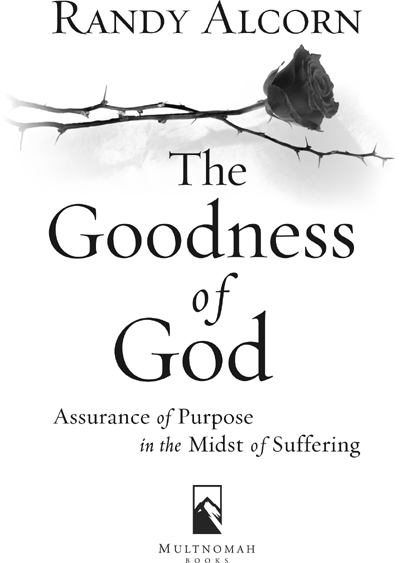Contents
Landmarks
To Doreen Button, Thomas Womack,
Pamela Shoup, and Holly Briscoe,
with deep appreciation for your editorial skills.
Contents
1. Tragic Choices
Determining the Origins of Evil and Suffering
2. Whats Wrong? I Am
Accepting the Reality of Inherited Sin
3. Alternative Answers
Examining Explanations for Evil and Suffering
4. A Clash of Worldviews
Investigating Relativism, Atheism, and the Problem of Goodness
5. The Great Drama
Reviewing the Roles of Evil and Suffering in Christs Redemptive Work
6. Why So Much Evil?
Questioning Why God Allows Evil and Delays Justice
7. Gods Control and Our Freedom
Discovering How God Rules Despite Our Choices
8. Are We Promised Prosperity?
Recovering a Biblical View of Health and Wealth
9. The World We Long For
Exploring Gods Eternal Solution to Evil and Suffering
10. Wanting More Clarity
Wrestling with the Reasons for Our Suffering
11. What We Can Do
Finding Perspective in Our Suffering

I know the things that happen: the loss and the loneliness and the pain. But theres a mark on it now: as if Someone who knew that way Himself, because He had travelled it, had gone on before and left His sign; and all of it begins to make a little sense at lastgathered up, laughter and tears, into the life of God, with His arms around it!
P AUL S CHERER
Introduction
A Search We All Share
D uring the two years it took to research and write my large book If God Is Good: Faith in the Midst of Suffering and Evil, many people asked me what I was working on. I expected my answercontaining the words evil and sufferingwould prompt a quick change of subject. Most, however, expressed keen interest and asked penetrating questions. Several launched into their own stories, as if having received permission to uncork the bottle.
What, after all, is more universal to human experience than suffering? And what can be more important than the perspective we bring to it?
W HEN I TS D EEPLY P ERSONAL
You may be looking for answers to a philosophical problem or an intellectual struggle. Or you may be looking less for answers than for hope. When a child has fallen off a bicycle, her father doesnt give a lecture about nerve endings, skin tissue, and the role of blood as its pumped by the heart. He reassures the child that hes there for her, and everything will be okay. For you, the answer may simply be God really does love me.
If something like abuse, desertion, debilitating disease, or the loss of a loved one has devastated you, then suffering isnt theoretical or philosophical. Its deeply personal.
In writing his magnificent story of redemption, God has revealed truths about himself, us, the world, goodness, evil, suffering, and Heaven and Hell. Those truths teem with lifethe blood of man and of God flows through them. God speaks with passion, not indifference. To come to grips with the problem of evil and suffering, you must do more than hear heart-wrenching stories about suffering people. You must hear Gods truth to help you interpret those stories.
Maybe youre holding on to years of bitterness and depression. You blame someone else for your sufferingand that someone may be God. You will not find relief unless you gain perspective.
But perhaps you fear that any attempt to gain perspective will deny or minimize your suffering, or that of others. I promise you, the Bible doesnt minimize suffering or gloss over it, and neither will I.
At times, each of us must snuggle into our Fathers arms, like children, and there receive the comfort we need. God doesnt just offer us advice, he offers us companionship. He doesnt promise we wont face hardship, but he does promise hell walk with us through our hardship.
T HE Q UESTION
A Barna Research poll asked, If you could ask God only one question and you knew he would give you an answer, what would you ask? The most common response was, Why is there pain and suffering in the world? This isnt merely a problem; its the problem. And for the culture at large, it appears to pose a greater difficulty now than ever. Unlike the average person in earlier centuries, we today have a far higher assumption and expectation of comfort, health, and prosperity.
When people take time to reflect on lifes meaning in this world, no question looms larger than this one: If God is good why all this evil and suffering? If God loves us, how can he justify allowing (or sending) the sometimes overwhelming difficulties we face? How we answer this question will radically affect how we perceive God and the world around us.
We may want to turn away from the worlds suffering and ignore the significance of our own pain; we just want it to go away. But despite the superficiality of our culture, we remain Gods image-bearersthinking and caring people, wired to ask questions and seek answers.
You wont get far in a conversation with someone who rejects the Christian faith before the problem of evil is raised. Atheists such as Richard Dawkins and Christopher Hitchens claim it proves that God doesnt exist. (Never mind that many who suffer most believe and trust in God, while many who suffer least dont.) British philosopher Antony Flew, a former champion of atheism, renounced his atheism during the past decade, citing the complexity of the universe and his belief in the overwhelming evidence for intelligent design. Flew did not, however, convert to the Christian faith, but only to deism. Why? He couldnt get past the problem of evil. He believes God must have created the universe, then abandoned it.
M Y O WN E XPERIENCES WITH S UFFERING
Im a fellow traveler with you on this road of suffering. In 1970, as a sixteen-year-old new Christian, I watched my friend Greg die from a horrible accident. In 1979, I had to tell my mother that her only brother had been murdered with a meat cleaver. Two years later, Mom died from cancer. About the same time, I was in the throes of an unjust lawsuit that cost me a job I loved and the ability to earn a normal wage.
In 1992 I was alone with my best friend from childhood when he died from cancer, at age thirty-nine. A few years lateralongside my wife, daughters, and brotherI held my dads hand as he died, a shriveled version of the vibrant man Id known.
For twenty-five years Ive battled a disease that daily affects my body and mind, and will probably shorten my life span. But all in all, if Ive suffered a little more than some people, Ive suffered a great deal less than others. And while seeking to understand the huge question of evil and suffering, Ive realized my need for a deeper and wider perspective.
Along the way Ive asked God to give me wisdomand discovered that wisdom begins with the humility to say, Theres a great deal about this I dont understand. In fact, if I imagined I had all the answers neatly lined up, what Ive written wouldnt be worth reading.
While researching this subject, Ive read nearly a hundred books, listened to countless lectures and debates, and interviewed dozens of people who have faced great evil and suffering. That probably doesnt sound like fun, yet I found something surprising: the journey was not only rewarding, but also fascinating, enlightening, and at times downright enjoyable. I know it sounds counterintuitiveshouldnt meditating on evil and suffering be

